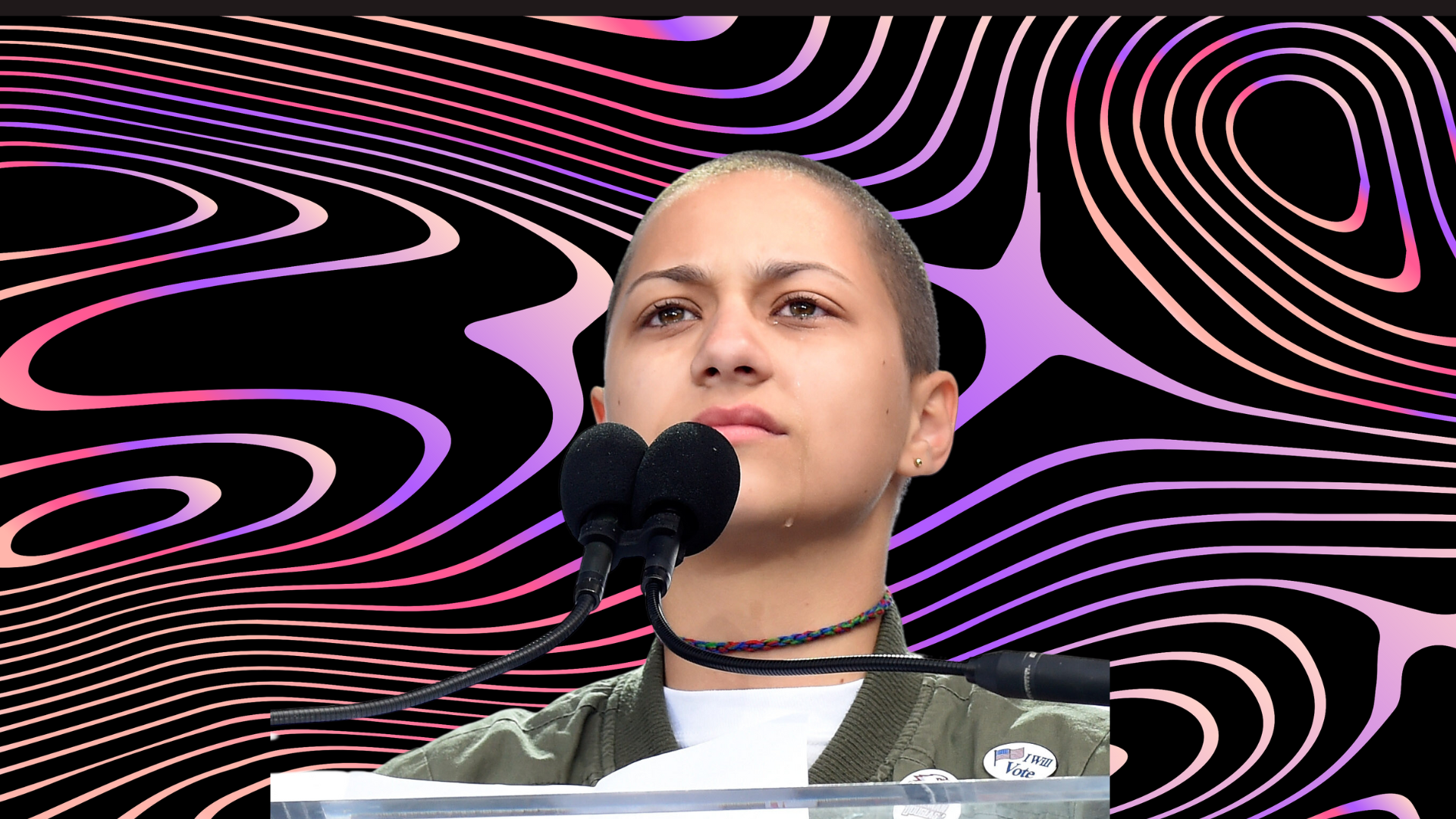In 2018, an armed 19-year-old entered Marjory Stoneman Douglas high school in Parkland, Florida, and started shooting. He killed 17 people. X González, then a senior at the school, wasn’t one of them. But they could have been.
“It’s been almost five years since my classmates and I marched for the first time, and it’s hard not to feel like things are pretty much the same,” González wrote in an article for The Cut earlier this year. “Gun violence happens every day in this country.”
It’s true that America has yet to enact any substantial legislation to help end the consistent violence brought on by easily-accessible, military-grade firearms. We’re still living in terror every day that our school, our local supermarket, or our neighborhood gay club could be the target of the next massacre. But X González is pushing past their fear to do something even more important, at times, than activism. They’re learning to take care of themselves. Because the fight ahead is long, and it requires stamina.
Being in the spotlight helped engage the public with González’s vital cause: ending gun violence. But it also hurt them. Just days after their school was targeted, they made their now-infamous “We Call BS” speech—written on the family computer, using their AP government course notes the morning before—at the Broward County courthouse. They went on the Ellen Degeneres show. Their words were sampled by Madonna in the Madame X track “I Rise.” They were one of 2018’s Time 100 honorees. They organized, along with fellow classmates, the first-ever March For Our Lives rally.
They spoke passionately about this country’s need to once and for all get serious about gun control. And America didn’t listen.
Related:
The Heroes of Club Q, Remembered
Let’s remember them as they truly were.
Worse than that: complacent older Americans saw someone like González as a sign that Gen Z would somehow flawlessly take on all the problems of this country and make them disappear. “Well, it’s on you kids now; we f*cked it all up, and now it’s your job to fix it,” one “white-haired” executive told them in Washington. “How nice that must have felt for him,” González wrote, “or for the countless people who would, in the coming years, say exactly the same thing to me, offloading the capacity to make change to us as a way of absolving themselves of their own role in America’s problems.”
Because that’s the problem, writ large. America still isn’t listening. It’s not González’s fault—it couldn’t be. This problem has been going on too long, and González is one of the most recent activists to realize that if we want to change to happen, it can’t hinge on one’s person’s passion and commitment to the cause. We have to start pulling some of the weight, so that activists like González can stay in the fight.
“I’m still trying to figure out what type of activism I want to engage in,” they explained. “I don’t want to be passive for the rest of my life but I cannot exist in the way that I used to.”
None of us can. It’s precisely by that owning up to this—the inability of one person to shift the tide, of one generation, even, to make the change this country so desperately needs—that makes González a hero. They spoke up, they fought back, and now, they’re gearing up for the next fight. They’re staying in Florida, witnessing the battleground against queer rights the state has become. Witnessing, for now, so that they can keep fighting for longer. ♦
Don't forget to share:
Discover more

Help make sure LGBTQ+ stories are being told...
We can't rely on mainstream media to tell our stories. That's why we don't lock our articles behind a paywall. Will you support our mission with a contribution today?
Cancel anytime · Proudly LGBTQ+ owned and operated
Read More in 25 Under 25
The Latest on INTO
Subscribe to get a twice-weekly dose of queer news, updates, and insights from the INTO team.
in Your Inbox














